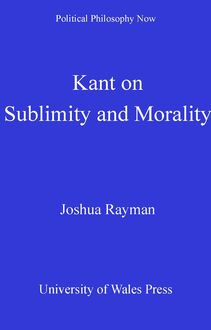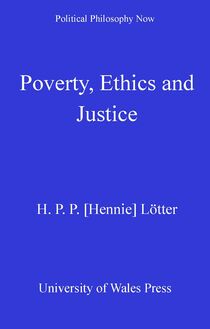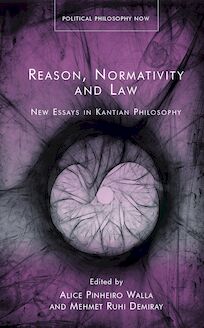-
 Univers
Univers
-
 Ebooks
Ebooks
-
 Livres audio
Livres audio
-
 Presse
Presse
-
 Podcasts
Podcasts
-
 BD
BD
-
 Documents
Documents
-
- Cours
- Révisions
- Ressources pédagogiques
- Sciences de l’éducation
- Manuels scolaires
- Langues
- Travaux de classe
- Annales de BEP
- Etudes supérieures
- Maternelle et primaire
- Fiches de lecture
- Orientation scolaire
- Méthodologie
- Corrigés de devoir
- Annales d’examens et concours
- Annales du bac
- Annales du brevet
- Rapports de stage
La lecture à portée de main
Vous pourrez modifier la taille du texte de cet ouvrage
Découvre YouScribe en t'inscrivant gratuitement
Je m'inscrisDécouvre YouScribe en t'inscrivant gratuitement
Je m'inscrisEn savoir plus
Vous pourrez modifier la taille du texte de cet ouvrage
En savoir plus

Description
Introduction PART 1 - THE COMPLEXITY OF POVERTY AS A MORAL ISSUE 1. Are We One Another's Keepers Across the Globe? 2. Defining Poverty as Distinctively Human 3. Why the Inequality of Poverty is Morally Wrong 4. Poverty Violates Fundamental Human Values 5. Poverty's Impact on Human Environments 6. Poverty as Threat to Democratic Values 7. Why Poverty is Such a Complex Affair PART 2 - THE COMPLEXITY OF MORAL WAYS TO ERADICATE POVERTY 8. Ethics for Eradicating Poverty 9. Justice as Poverty Prevention 10. Do We Do This Alone or Together? 11. Re-Imagining Governance to Eradicate Poverty Permanently 12. Compensating for Impoverishing Injustices of the Distant Past Conclusion: A Theory of Poverty and its Eradication Bibliography
Sujets
Informations
| Publié par | University of Wales Press |
| Date de parution | 15 juin 2011 |
| Nombre de lectures | 0 |
| EAN13 | 9781783160273 |
| Langue | English |
Informations légales : prix de location à la page 0,0650€. Cette information est donnée uniquement à titre indicatif conformément à la législation en vigueur.
Extrait
POLITICAL PHILOSOPHY NOW
Chief Editor of the Series: Howard Williams, Aberystwyth University, Wales
Associate Editors: Wolfgang Kersting, University of Kiel, Germany Steven B. Smith, Yale University, USA Peter Nicholson, University of York, England Renato Cristi, Wilfrid Laurier University, Waterloo, Canada
Political Philosophy Now is a series which deals with authors, topics and periods in political philosophy from the perspective of their relevance to current debates. The series presents a spread of subjects and points of view from various traditions which include European and New World debates in political philosophy.
For other titles in this series, please see the University of Wales Press website: www.uwp.co.uk
Poverty, Ethics and Justice
H. P. P. [Hennie] Lötter
UNIVERSITY OF WALES PRESS • CARDIFF • 2011 -->
© Hennie Lötter, 2011
All rights reserved. No part of this book may be reproduced in any material form (including photocopying or storing it in any medium by electronic means and whether or not transiently or incidentally to some other use of this publication) without the written permission of the copyright owner except in accordance with the provisions of the Copyright, Designs and Patents Act 1988. Applications for the copyright owner’s written permission to reproduce any part of this publication should be addressed to the University of Wales Press, 10 Columbus Walk, Brigantine Place, Cardiff, CF10 4UP.
www.uwp.co.uk
British Library Cataloguing-in-Publication Data A catalogue record for this book is available from the British Library.
ISBN 978-0-7083-2400-4 e-ISBN 978-1-78316-027-3
The right of Hennie Lötter to be identified as author of this work has been asserted by him in accordance with sections 77, 78 and 79 of the Copyright, Designs and Patents Act 1988.
Typeset in Wales by Eira Fenn Gaunt, Cardiff Printed in Great Britain by CPI Antony Rowe, Wiltshire
For Emma, colleague and friend, whose support and critique improved this book
Contents
Acknowledgements
Introduction
PART 1 THE COMPLEXITY OF POVERTY AS A MORAL ISSUE
1 Are We One Another’s Keepers Across the Globe?
2 Defining Poverty as Distinctively Human
3 Why the Inequality of Poverty is Morally Wrong
4 Poverty Violates Fundamental Human Values
5 Poverty’s Impact on Human Environments
6 Poverty as Threat to Democratic Values
7 Why Poverty is Such a Complex Affair
PART 2 THE COMPLEXITY OF MORAL WAYS TO ERADICATE POVERTY
8 Ethics for Eradicating Poverty
9 Justice as Poverty Prevention
10 Do We Do This Alone or Together?
11 Re-Imagining Governance to Eradicate Poverty Permanently
12 Compensating for Impoverishing Injustices of the Distant Past
Conclusion: A Theory of Poverty and its Eradication
Notes
Bibliography
Acknowledgements
I am grateful for the role of my parents in so many ways. My late father and my mother are exemplars of persons who developed and used their capabilities to build flourishing lives.
My heartfelt thanks to Trix and Lisa, who had to sacrifice a lot of family time and endure the hours I spent working on this book for many years, but nevertheless gave their utmost support.
Trix shared the emotional upheavals that accompanied the stresses and strains of this lengthy, at times disturbing, project. She was always there to talk to. In this way she made a long and arduous journey easier.
I have deep appreciation for David Braybrooke (emeritus professor of Philosophy at the University of Texas at Austin) who read the manuscript thoroughly and with deep insight. He gave lots of helpful comments.
Part of the research for this book was done at Oxford University during September 2004 to March 2005 whilst I was on a generous Commonwealth Fellowship. The late Professor G. A. Cohen was my host.
This book has been brought to publication with the kind assistance of the Publication Subvention Programme of the Research Management Committee of the Faculty of Humanities at the University of Johannesburg.
Chapter 2 was published in an earlier form in September 2007 in HTS ( Hervormde Teologiese Studies ), 63, 3. An extract was used as a chapter in my book called When I Needed a Neighbour Were You There? Christians and the Challenge of Poverty (Wellington, South Africa: Lux Verbi).
Chapter 4 was published in an earlier form in ‘The moral challenge of poverty’s impact on individuals’, Koers , 72, 2 (2007).
Chapter 5 was published in an earlier form in 2008 as a chapter in my book called When I Needed a Neighbour Were You There? Christians and the Challenge of Poverty (Wellington, South Africa: Lux Verbi).
Chapter 6 was published in an earlier form in Public Affairs Quarterly , 22, 2, April 2008, 175–93.
Chapter 12 was published in an earlier form in Politikon: South African Journal of Political Science in June 2005.
Introduction
Ever since time immemorial poverty and war provide evidence that our species willingly allows millions of our members to die preventable deaths and suffer all kinds of harms and humiliations. The fight against our inhumanity must never stop. With every breath we take we must work against our dark side that inflicts pain, suffering and death on our fellow human beings. In every awake moment we must engage our energy against our cold hearts that are unmoved by the dreadful conditions we find so many of our kind have to deal with.
Throughout my life I have seen how friends, acquaintances and strangers struggle to make life meaningful against the odds stacked by the easily recognizable condition of poverty. I could not fail to observe how others respond: some think they understand exactly how people got themselves into such a mess, blaming the poor for their unfortunate condition and its obstinate persistence. Others ignore the obvious suffering and congratulate themselves and perhaps praise their gods for their own success and prosperity. A few compassionate hearts make brave attempts, with more or less success, to change the lives of people negatively affected by a condition sometimes only vaguely understood.
There is no doubt that our understanding of the phenomenon of poverty has increased exponentially in the last century or so – at least within the ranks of human scientists and some smart policy makers. However, despite numerous attempts by individuals, organizations, governments and international institutions, suffering caused by poverty persists on a massive, alarming scale throughout the world.
In this book I aim to contribute to the struggle to eradicate poverty everywhere. I use the results from numerous studies by human scientists over many decades to present a profile of poverty and its effects on human lives. In contrast to the more abstract philosophical ways of dealing with some select, narrowly defined issue that excludes a view on the full impact of poverty on human lives, I choose a holistic approach that portrays the wide range of dimensions complexly assembled in every case of poverty. Only a profile expressing a comprehensive grip of the multidimensional nature of poverty that highlights the diverse range of harmful impacts poverty might have can provide the proper background for a deep understanding of a seriously troubling condition. Only such an understanding can be an appropriate illumination of the salient issues for moral evaluation as a prelude for aid and action.
The core argument of the book runs as follows. Poverty is a complex multidimensional phenomenon amongst humans that violates a host of ethical values and can only be eradicated through a similarly complex suite of responses based on a comprehensive evaluation by means of a generally accepted set of moral values. In Part 1 of the book I show the full complexity of poverty as a moral issue. I first set up an argument in chapter 1 to demonstrate that poverty anywhere is a concern of human beings everywhere. I then proceed to provide a definition that depicts poverty as a serious moral wrong that undermines the human dignity of its sufferers and threatens their health.
Next, I argue that poverty is a complex phenomenon playing out in different ways in different instances that has a wide ranging series of negative impacts on individuals and societies. The main point about the conditions and consequences of poverty is that poverty undermines the human dignity of its sufferers. Poverty must thus, first and foremost, be eradicated for its inhuman consequences, because these consequences make it so much more difficult to build flourishing lives and use available opportunities to realize one’s potential.
I understand the main effect of poverty as being a threat to the human dignity and self-respect of its sufferers. I thus propose that poverty can best be understood from a variety of ethical perspectives through using a diverse group of metaphors and descriptions that unpack every dimension of its possible harm to human life.
In the light of the complexities of the symptoms, effects and causes our understanding of this multidimensional phenomenon generates, I argue that full eradication of poverty can only be accomplished through a diverse set of individual and collective actions based on a comprehensive series of moral evaluations that present a correct understanding of the moral requirements for aid and empowerment. These complexities also imply eradication can best be done through collective human action. I argue that we must re-imagine and revise the goal and purpose of political institutions and reformulate the purposes aid ought to be for. Aid for full eradication must include a suite of diverse human interventions that must meaningfully involve everyone: rich and poor, scientific expert and layperson, political leaders and their followers, global institutions and local street committees, highly organized groups and lone individuals, aid givers and aid receivers.
I build my argument as fo
-
 Univers
Univers
-
 Ebooks
Ebooks
-
 Livres audio
Livres audio
-
 Presse
Presse
-
 Podcasts
Podcasts
-
 BD
BD
-
 Documents
Documents
-
Jeunesse
-
Littérature
-
Ressources professionnelles
-
Santé et bien-être
-
Savoirs
-
Education
-
Loisirs et hobbies
-
Art, musique et cinéma
-
Actualité et débat de société
-
Jeunesse
-
Littérature
-
Ressources professionnelles
-
Santé et bien-être
-
Savoirs
-
Education
-
Loisirs et hobbies
-
Art, musique et cinéma
-
Actualité et débat de société
-
Actualités
-
Lifestyle
-
Presse jeunesse
-
Presse professionnelle
-
Pratique
-
Presse sportive
-
Presse internationale
-
Culture & Médias
-
Action et Aventures
-
Science-fiction et Fantasy
-
Société
-
Jeunesse
-
Littérature
-
Ressources professionnelles
-
Santé et bien-être
-
Savoirs
-
Education
-
Loisirs et hobbies
-
Art, musique et cinéma
-
Actualité et débat de société
- Cours
- Révisions
- Ressources pédagogiques
- Sciences de l’éducation
- Manuels scolaires
- Langues
- Travaux de classe
- Annales de BEP
- Etudes supérieures
- Maternelle et primaire
- Fiches de lecture
- Orientation scolaire
- Méthodologie
- Corrigés de devoir
- Annales d’examens et concours
- Annales du bac
- Annales du brevet
- Rapports de stage




















